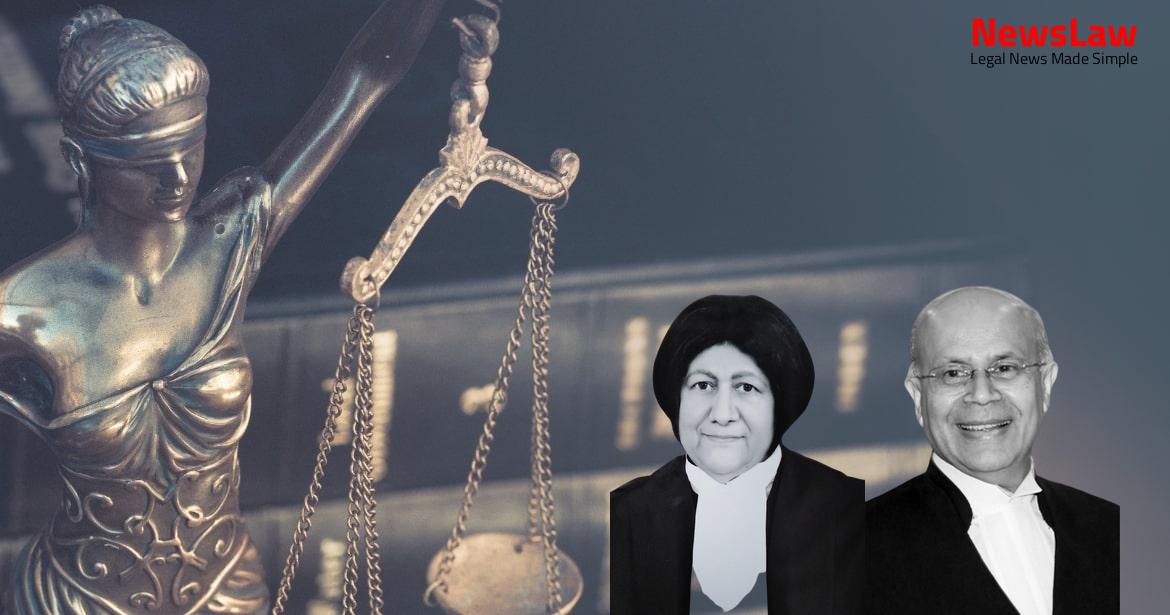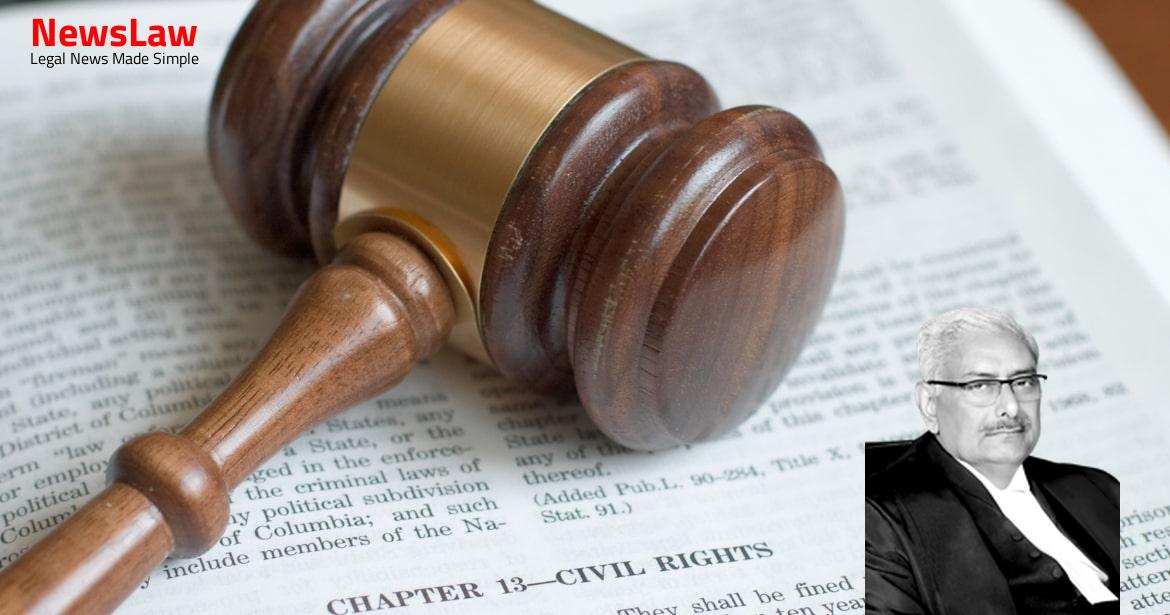In a recent legal case, the High Court dismissed the appeal of accused individuals convicted for kidnapping with the intent to compel marriage. The court’s decision was based on a thorough analysis of the legal provisions under Section 366 of the IPC, focusing on the specific requirements for establishing the offence. The court’s judgment highlights the importance of proving both the act of abduction and the intent behind it in cases involving crimes against the human body. Let’s delve into the details of this significant legal ruling.
Facts
- Accused no. 1 expressed desire to marry PW-8, daughter of PW-7, leading to their eviction from the house.
- PW-7 lodged a complaint on the same day of the incident.
- Accused no. 1 was apprehended in the company of the victim on 22.07.2002.
- Accused no. 2 and accused no. 3 were also apprehended later.
- Accused no. 4 and accused no. 5 provided shelter to accused no. 1 and the victim.
- The High Court dismissed the Criminal Appeal No 128 of 2005 filed by accused nos. 1 and 2, affirming the trial court’s order.
- The trial court convicted the appellants and sentenced them for various offences under IPC sections.
- The offences included Section 366, Section 323, Section 343, and Section 506 IPC.
- The appellants were sentenced to undergo different durations of Rigorous Imprisonment for each offence.
- The appellants appealed against the conviction and sentencing to the High Court.
- The High Court dismissed the appeal.
Also Read: Legal Analysis on Arbitration Petition Limitation Period
Arguments
- The counsel for the appellants referred to a prior court decision to argue that the victim voluntarily joined the accused.
- The counsel for the respondent-State supported the High Court’s judgment, stating that the victim was a minor at the time of the offense.
- Section 366 of the law was examined, which deals with kidnapping, abducting, or inducing women for various purposes.
- The appellants’ counsel argued that the victim was 18 years old and willingly accompanied the accused.
- It was also mentioned that eyewitnesses did not state that the victim was forced into the rickshaw.
Also Read: Analysis of High Courts’ Jurisdiction and Court Orders Under Article 142
Analysis
- Section 366 of the IPC falls under Chapter XVI which deals with offences against the human body.
- Kidnapping or abduction simpliciter is defined under Section 359 of the IPC with a maximum punishment of up to seven years of imprisonment.
- Section 366 specifies that kidnapping with the intent of compelling a woman to marry or engaging in illicit intercourse is punishable by imprisonment of up to ten years and a fine.
- Compulsion, criminal intimidation, abuse of authority, or other methods of compulsion inducing a woman to go from any place for illicit purposes are covered under this section.
- Stricter punishments are provided under Sections 363A to 369 for kidnapping with intent such as begging, murder, ransom, inducing marriage, or illicit intercourse.
- The prosecution must prove both the fact of abduction and the specific intent behind the kidnapping to establish an offence under Section 366.
- The language of Section 366 does not require proof of the factum of marriage to constitute an offense.
- The prosecution must show that kidnapping/abduction was done to compel the victim into marriage against her will.
- Father of the victim stated the victim’s age at the time of the incident.
- No contradictions were found in the victim’s evidence during cross-examination.
- Accused intentionally kidnapped the victim to perform the marriage.
- Statements of PW-7 supported by PW-8 (victim).
- Complainant lodged missing complaint when victim did not return, affirming the incident.
- Accused persons had expressed desire to marry the victim before the incident.
- Victim was forcibly confined, with legs tied, in the house of accused no.1’s sister.
- Investigating officer collected original documents supporting victim’s age.
- The High Court affirmed the order passed by the trial court
- The sentence awarded is considered lenient
- The ingredients of offences under Sections 343, 323, and 506 of the Indian Penal Code are satisfied
- The appeal is dismissed
Also Read: Electoral Malpractices in Mayor Election
Decision
- The bail bonds of the appellants have been cancelled due to the dismissal of the appeal.
- Appellants must surrender before the trial court within two months from the date of communication of the order.
- If they fail to surrender, police authorities are directed to take them into custody to serve out the remaining period of sentence.
Case Title: MOHAMMED YOUSUF @ MOULA Vs. THE STATE OF KARNATAKA (2020 INSC 459)
Case Number: Crl.A. No.-001938-001938 / 2010



